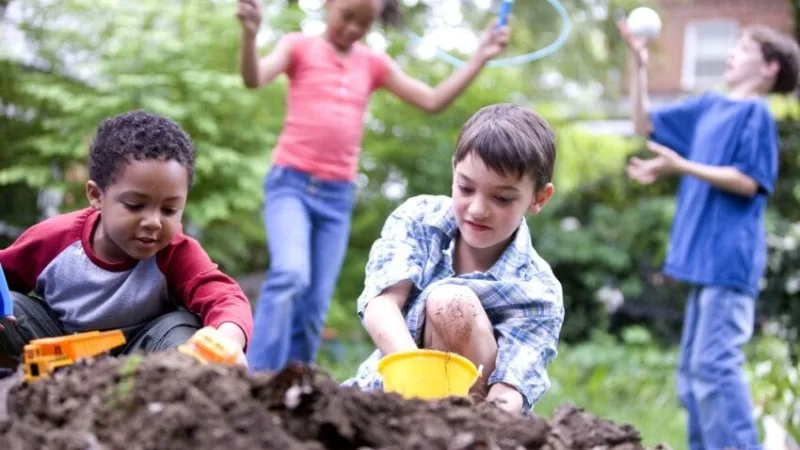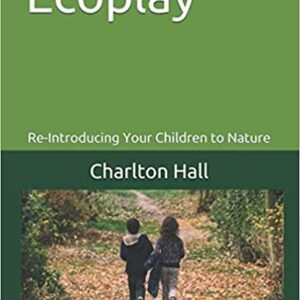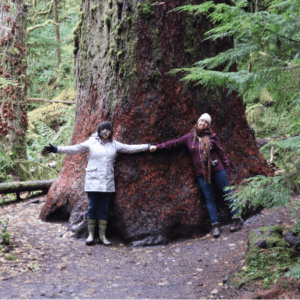$99.99
- Target Audience: Professional Counselors and Therapists; Play Therapists
- Online Home Study Continuing Education Hours: 13
- INCLUDES COPY OF ECOPLAY FACILITATOR MANUAL IN PDF FORMAT
Description
Privacy Policy | Refund and Returns Policy | Terms and Conditions
COURSE DESCRIPTION
What is Ecoplay?
Ecoplay is an 8-week filial play program that trains parents to be ecoplay ‘therapists’ for their own children. It is also a theoretical framework and approach to therapy that allows children to express themselves in play, their natural language. Ecoplay allows this expressive play to happen in healthy natural environments. Ecoplay is founded on four core principles: Mindfulness, ecotherapy, family resilience and play therapy.
This online course teaches mental health professionals to be facilitators of the Ecoplay program, teaching parents and clients how to use the eight-week program to re-connect their children to nature.
Mindfulness
Mindfulness, at its core, simply means paying attention to the present moment. Children live in the “now” of existence when at play. The tools and skills of mindfulness allow children to let go of the past and the future and to focus on their immediate experience.
Ecotherapy
Ecotherapy is simply therapy that takes place outdoors. Play in natural environments has been linked with a wide variety of positive outcomes, including better focus and concentration, a greater sense of self-efficacy and well-being, and enhanced learning and retention.
Family Resilience
All families go through crises from time to time. While a crisis can bring some families closer together, it can also tear some families apart. What makes the difference in those families that are able to weather a crisis are family resilience factors. Multiple studies have identified these factors of family resilience. They have been condensed into the 7Cs of Ecoplay. These seven family resilience factors in Ecoplay are: Compassion, communication, control, choices, consequences, consistency and confidence. Ecoplay covers what these factors mean to you and your family and how to implement them as strengths.
Play Therapy
Children, especially children under 12, lack the vocabulary to discuss complex emotional issues; but they are able to express their emotions during play. Play is a child’s natural emotional language, and play therapy allows children to express themselves in ways that make sense to them. Ecoplay uses all of the approaches listed above to help your child to live a fuller, richer and more meaningful existence.
Overview of the Eight-Week Ecoplay Program
Session 1: Introduction to Ecoplay
Ecoplay is an evidence-based eight-session training program designed to give parents and their children the opportunity for experiential activities outdoors that combine mindfulness, ecopsychology and the skills of positive parenting. Ecoplay is an authoritative, rather than authoritarian, approach to discipline and parenting. It is a framework for guiding your child(ren) to reconnect to nature in healing ways. Ecoplay trains parents to be nature-based play therapy facilitators for their own children. It is also a theoretical framework and approach to parenting that allows children to express themselves in play, their natural language. Ecoplay allows this expressive play to happen in healthy natural outdoor environments.
Session 2: Compassion
We can talk about problems all day, but until we start talking about solutions, nothing gets solved. Ecoplay focuses on family strengths and connections. It is a solution-focused approach that looks more at what’s working than what’s not working. The Pygmalion Effect teaches us that people tend to become what you expect them to become. If you expect good things from your children, you generally get good things from them. However, if you expect “bad” things from your children by focusing on problems rather than on solutions, your children tend to engage in the behaviors you expect. Ecoplay’s compassionate approach is a positive parenting model designed to catch your children being good by focusing on solutions.
Session 3: Communication
Ecoplay is based on mindful communication strategies. What we say is not always what our children hear. Many of the difficulties in parenting occur due to miscommunications. These communication errors usually occur when our children assume that we meant something different than what we actually said, or when we assume that our children mean something different than what they actually said. By learning proactive, mindful communication strategies we can learn to communicate our intentions in ways that lead to the results we want. In mindful communication we learn to be in the moment with each other, without concerns about the past or the future. In the moment we are able to truly hear and validate each other. From here healing can happen.
Session 4: Control
Ecoplay takes the stance that there is no such thing as a “wrong” feeling. What may be “wrong,” or unproductive, is the way we choose to respond to our feelings. With Ecoplay we learn to respond in positive ways to feelings so that our interactions do not become problematic. We all like to feel that we have some measure of control over our lives. Children are no exception to this rule. Parenting difficulties sometimes come when get caught up in power struggles over control issues with our children.
Session 5: Choices
Ultimately, maturing into adulthood means learning to make good choices. The only way to learn to make good choices is to have the opportunity to make not-so-good choices. Ecoplay uses the power of choice-giving and choice-making to allow your children to gain confidence on their journey to adulthood. If we can change our thoughts and feelings, we can change our worlds. Our choices are the result of our beliefs. Our beliefs are a result of our thoughts and assumptions about the world and about our children. If our choices are leading to consequences we don’t want, we can consciously change our choices by challenging the thoughts and beliefs that led to them. By changing our choices, we learn to create consequences that we do want for ourselves and for our children.
Session 6: Consequences
Every choice has a consequence. By skillful used of consequences we teach our children self-control and personal responsibility. By linking consequences to choices we teach our children to think for themselves and to take responsibility for their own actions. Every choice is the result of a belief. Each behavioral choice leads to consequences. By examining the consequences of our choices through examining the thoughts, feelings and beliefs that led to those choices, we learn to create different consequences.
Session 7: Consistency
Consistent consequences for consistent choices helps your child to learn self-confidence in a safe, predictable environment. While maintaining consistency can be hard, parents who are able to achieve a level of consistency with their children will reap the rewards. The key to developing consistency is to change the way your family thinks about things. Such a paradigm shift becomes possible by living in the moment. By shifting the focus to the present, we help our children to regain control of their behaviors in the present so that they can choose a different future.
Session 8: Confidence
Everyone has two images of self: The person they see themselves as and the person they’d like to be. Your children are no different. They are in the process of discovering who they are. With your guidance, they can gain the confidence to explore their futures. Ecoplay at its core is concerned with helping children and family members express the persons they were born to be. Doing so allows your child to live a life of confidence.
Instructor Qualifications and Contact Information
This course was created by Charlton Hall, MMFT, PhD.
Charlton Hall, MMFT, PhD is a former Marriage and Family Therapy Supervisor and a former Registered Play Therapy Supervisor (now retired from both those roles).
In 2008 he was awarded a two-year post-graduate fellowship through the Westgate Training and Consultation Network to study mindfulness and ecotherapy. His chosen specialty demographic at that time was Borderline Personality Disorder.
Dr. Hall has been providing training seminars on mindfulness and ecotherapy since 2007 when he founded what would become the Mindful Ecotherapy Center, LLC, and has been an advocate for education in ecotherapy and mindfulness throughout his professional career, serving on the South Carolina Association for Marriage and Family Therapy’s Board of Directors as Chair of Continuing Education from 2012 to 2014.
He served as the Chair of Behavioral Health for ReGenesis Health Care from 2014 to 2016 and trained all the medical staff in suicide risk assessment and prevention during his employment at that agency.
Dr. Hall is also a trained SMART Recovery Facilitator and served as a Volunteer Advisor in South Carolina for several years.
Dr. Hall’s area of research and interest is using Mindfulness and Ecotherapy to facilitate acceptance and change strategies within a family systemic framework, and he has presented research at several conferences and seminars on this and other topics.
Click here for instructor contact information
Click here to see a biography and summary of credentials for the Instructor.
DISCLAIMER
The Mindful Ecotherapy Center, LLC has been approved by NBCC as an Approved Continuing Education Provider, ACEP No. 7022. Programs that do not qualify for NBCC credit are clearly identified. The Mindful Ecotherapy Center, LLC is solely responsible for all aspects of the programs.
All course materials for this online home study continuing education course are evidence-based, with clearly defined learning objectives, references and citations, and post-course evaluations. Upon request a copy of this information and a course description containing objectives, course description, references and citations will be given to you for your local licensing board.
All of our courses and webinars contain course objectives, references, and citations as a part of the course materials; however, it is your responsibility to check with your local licensure board for suitability for continuing education credit.
No warranty is expressed or implied as to approval or suitability for continuing education credit regarding jurisdictions outside of the United States or its territories.
If a participant or potential participant would like to express a concern about his/her experience with the Mindful Ecotherapy Center, NBCC ACEP #7022, he/she may call or e-mail at (864) 384-2388 or [email protected]. Emails generally get faster responses.
You may also use the contact form below.
Although we do not guarantee a particular outcome, the individual can expect us to consider the complaint, make any necessary decisions and respond within 24 to 48 hours.
Privacy Policy | Terms and Conditions | Refund and Return Policy

Contact MEC | Help with Courses | My Account | Student Forum





